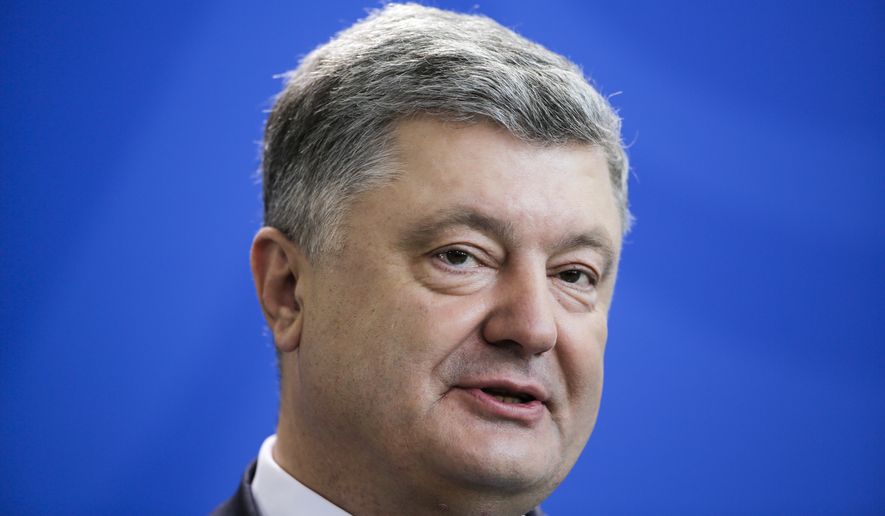There were high hopes in Ukraine after the 2014 Maidan Revolution, where “people power” put a pro-Russian president to flight.
Three years later, those hopes have pretty much been dashed, a result of the failure of the government of President Petro Poroshenko to rein in corruption and the corrosive effects of the oligarch system undermining the Ukrainian economy. In fact, the government is not battling corruption — it is enabling it, hiding it, fostering it, managing it and profiting from it.
What is abundantly clear is that the government in Kiev cannot fix the problems because it doesn’t want to. What is needed is wholesale change to the system. The corruption has to be pulled out by the roots.
Foreign investors and human capital are leaving Ukraine. There is very little accountability with the spending of state funds. When corruption takes money out of the state system, that money is lost. It is not recycled in the domestic economy. Small businesses are forced out or see their profits stolen when they get too successful, killing entrepreneurship and innovation.
What the Ukrainians and the international bodies trying to help them need to realize is that just passing legislation or forming new bureaucracies to police the old bureaucracies will change nothing. The entire society needs to be transformed; the way of thinking, the way of building a future, the way of governing — all have to be not just overhauled, but revolutionized. The people power of the Maidan uprising can only be harnessed by such an ambitious strategy. Anything less won’t do the job.
The presidential election of 2019 is a chance to change Ukraine’s trajectory and pull it back toward the rule of law.
Mr. Poroshenko will of course run for re-election, but it is not certain that he will win. He is currently polling behind several other candidates, and it seems Ukrainian voters have had enough of the obvious graft and favoritism shown by the current administration. Mikheil Saakashvili, the former governor of Odessa and an anti-corruption activist, predicts that Ukraine “will continue to break up” unless the government improves the economy and gets its arms around the corruption problem.
The candidate now leading opinion polls is a familiar face, former Prime Minister Yulia Tymoshenko. However, it is unclear if she would make a difference. Ms. Tymoshenko’s past is littered with corruption charges and political maneuvering. Her former ally, ex-President Viktor Yushchenko, observed in 2009: “I am sure that every week spent by Yulia Tymoshenko in the post of prime minister leads the country to a catastrophe. Because of Yulia Tymoshenko, it is a crisis, a crisis in everything.”
Just behind her is former Vice Prime Minister Yuriy Boyko, who also once served as energy minister. Mr. Boyko has ties to the ousted pro-Russian Viktor Yanukovych government and the Kremlin. He is a close colleague of Dmytro Firtash, another oligarch friend of Russian President Vladimir Putin.
Ukrainians might well consider a lesser-known alternative, one who made a favorable impression at a recent Heritage Foundation event in Washington where he revealed his candidacy. I first met Valeri Babych, a former presidential candidate and member of parliament, several years ago in Kiev where he was busy building several large, very successful businesses.
Mr. Babych is running on a platform of morality, the development of human capital, better health care and support for small business and entrepreneurs.
I don’t know where the election in Ukraine will end up, but it’s a field ripe for a dark-horse challenger, one who could confound the pundits and the media prognosticators just as Donald Trump did, winning office by promising to always remember the forgotten man.
• L. Todd Wood is a former special operations helicopter pilot and Wall Street debt trader, and has contributed to Fox Business, The Moscow Times, National Review, the New York Post and many other publications. He can be reached at LToddWood.com.




Please read our comment policy before commenting.